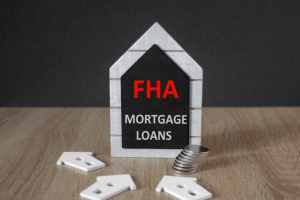Office Address
12150 SW 128th Ct,
Miami, Florida 33186
12150 SW 128th Ct,
Miami, Florida 33186
 " alt="Understanding FHA Loan Requirements VA">
" alt="Understanding FHA Loan Requirements VA">
A home purchase experience proves challenging for novice house buyers. Homebuyers who struggle with small down payments or poor credit scores can now buy homes thanks to special loan programs. An FHA loan exists to support individuals who want to own their first home. When buying a home in Virginia you need to know FHA loan requirements from the VA to begin your house purchase process.
Through FHA the Federal Housing Administration ensures home loans for borrowers. The federal program helps individuals get home loans when standard financing proves challenging. Since the government supports these loans lenders feel better about giving them to applicants who would fail to qualify with traditional mortgages.
FHA loans have more success in VA because their credit needs are easy to handle and they offer affordable down payment terms. These loans assist beginners who plan to purchase homes as well as people with mixed incomes or damaged credit scores.

The rules to qualify for an FHA loan in VA need to be understood before making your application. Let’s break them down step by step.
In VA your credit score stands as a major criterion for receiving an FHA loan. To qualify you must have a credit score equal to or higher than 580. You can secure this loan with a 3.5% down payment when you score 580. A credit score between 500 and 579 permits qualification but you must pay 10% down payments.
You can achieve home ownership through FHA loans even if your credit has past issues because they are created to help buyers who need a chance at homeownership.
The VA has specific rules about how much you need to put down when buying a home through an FHA loan. People without big savings find FHA loans easy to use. You can borrow an FHA loan along with a small 3.5% deposit when your credit score reaches 580 or better. If you plan to buy a $200,000 home you can get started with only $7,000 as a down payment through an FHA loan.
Applicants with below-average credit scores must make a 10% down payment on their home purchase. FHA loans give many buyers a solid choice despite their larger down payment requirement.
Your debt-to-income ratio (DTI) measures how much of your monthly income goes toward paying debts. FHA loans have specific DTI requirements to ensure you can afford your mortgage.
If your DTI is slightly higher, lenders might still approve your loan if you have other strong financial factors.
To qualify for a VA loan under FHA standards you need to show stable work records over the past two years. Lenders need to see you have worked steadily during the last two years. Recent work changes alone do not automatically disqualify you from loan eligibility. Show your lender both why you moved jobs and why your new role ensures reliable pay.
Buyers need to buy homes that match FHA requirements when getting a mortgage with these standards. FHA requirements state you need to live in the purchased property as your permanent residence. The Federal Housing Administration Refugee Support loan program permits buying only living spaces, not holiday houses or investment properties.
An FHA-approved person will assess the house to verify if it meets FHA criteria. The property inspection checks if the home is habitable and secure with a reasonable purchase price. The loan process requires sellers to fix their homes so that it meets approval standards.

When exploring FHA loan requirements VA, it’s important to know that there are different types of FHA loans to fit various needs:
Each loan type has its unique features, so make sure to choose the one that best fits your needs.
FHA loans are popular in VA for many reasons. Here are some of the biggest advantages:
While FHA loans have many benefits, it’s also important to understand their drawbacks:
How do FHA loans compare to conventional loans? Here are the main differences:
If you have a high credit score and a larger down payment, a conventional loan might be better. But for many people in VA, FHA loans offer a more accessible path to homeownership.
Applying for an FHA loan is a step-by-step process. Here’s what you’ll need to do:
FHA loans work perfectly for home buyers across Virginia. These programs help more people buy homes by letting them use smaller deposits and relax credit standards during purchase. When applying for FHA loan requirements VA you need to know factors like credit score minimums, required cash for a down payment, and home quality standards. If you find a knowledgeable lender and get ready correctly you can make the most of this program to reach your goal of home ownership.
People of all home-buying levels and credit types discover how FHA loans help them own a place to live. Spending time in research and loan planning will help you find the best financing solution for your requirements. Taking the proper steps will make your home-buying aspirations in VA possible.